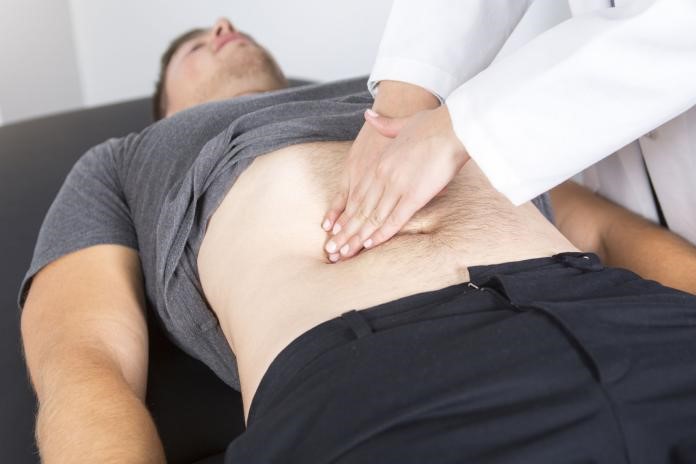
Pancreatic cysts: what are they and what are the symptoms?
Pancreatic cysts are abnormal fluid-filled structures that can form in the pancreas. These cysts are generally benign, but their asymptomatic nature often makes diagnosis difficult
What are pancreatic cysts?
Pancreatic cysts are fluid-filled sacs found in the pancreas, a gland located in the upper abdomen, just behind the stomach.
This gland is essential for the digestion of food and for the proper functioning of the digestive and endocrine systems.
Cystic neoplasms are the most common cases of cysts and usually do not evolve
However, they must be monitored over time and in some cases an echo-endoscopy is required for further diagnosis.
In the rare case where the cyst is at high risk of malignancy, surgical removal is necessary.
Inflammatory cysts or pseudocysts may appear as a result of pancreatitis (an inflammation of the pancreas that can be acute and chronic) or major trauma to the pancreas.
They can be acute or chronic and are usually painful.
Endoscopic procedures are the method of choice for their emptying, while surgery is rarer and is used to treat pancreatitis.
What are the symptoms of pancreatic cysts?
Although pancreatic cysts are usually asymptomatic, if they are particularly voluminous they can manifest symptoms such as:
- pain felt in the upper abdomen;
- nausea or vomiting if the cyst is pressing on the stomach or duodenum;
- Jaundice (yellow colour of the skin and eyes), if the cyst compresses the choledoch;
- Acute pancreatitis due to the presence of very thick mucus, produced by certain cystic tumours, (such as intraductal papillary-mucinous neoplasia) obstructing the pancreatic ducts.
Pancreatic cyst: how is it diagnosed?
The diagnosis of pancreatic cysts is often casual, as they do not cause any symptoms and are only detected when undergoing an instrumental test such as an ultrasound, CT scan or MRI, for unrelated reasons such as a check-up or acute events such as kidney colic.
How to prevent pancreatic cysts?
Pancreatitis is the main risk factor for inflammatory cysts.
Acute pancreatitis can be mild or more severe.
It is manifested by a sudden pain, accompanied by vomiting and a squeezing sensation, affecting the upper abdomen and often radiating to the back.
Chronic pancreatitis, on the other hand, is a more long-lasting inflammation, the cause of which is mainly alcohol abuse.
It is a disabling disease, which despite treatment cannot be reversed.
In the long run, this condition is a serious risk factor for pancreatic cancer.
For prevention, it is therefore important to
- limit alcohol intake;
- favour a Mediterranean diet with foods rich in lean protein (white meat, fish), fruit and vegetables, whole grains, pulses, semi-skimmed or skimmed milk and foods high in antioxidants such as green leafy vegetables, blueberries, grapes, sweet potatoes, carrots, nuts and pomegranate. Nutrition, in fact, is a key factor in maintaining pancreatic health.
Read Also
Emergency Live Even More…Live: Download The New Free App Of Your Newspaper For IOS And Android
Pancreatic Cancer: What Are The Characteristic Symptoms?
Gestational Diabetes, What It Is And How To Deal With It
Pancreatic Cancer, A New Pharmacological Approach To Reduce Its Progression
What Is Pancreatitis And What Are The Symptoms?
Kidney Stones: What They Are, How To Treat Them
Acute Pancreatitis: Causes, Symptoms, Diagnosis And Treatment
Pancreas: Prevention And Treatment Of Pancreatic Cancer
Acute Pancreatitis: What Is The Role Of Nutrition
Chemotherapy: What It Is And When It Is Performed
Ovarian Cancer: Symptoms, Causes And Treatment
Breast Carcinoma: The Symptoms Of Breast Cancer
CAR-T: An Innovative Therapy For Lymphomas
What Is CAR-T And How Does CAR-T Work?
Radiotherapy: What It Is Used For And What The Effects Are
Acute Pancreatitis: Causes, Symptoms, Diagnosis And Treatment
Gestational Diabetes, What It Is And How To Deal With It
Pancreatic Cancer, A New Pharmacological Approach To Reduce Its Progression
What Is Pancreatitis And What Are The Symptoms?
Kidney Stones: What They Are, How To Treat Them
Symptoms And Treatment For Hypothyroidism
Hyperthyroidism: Symptoms And Causes
Surgical Management Of The Failed Airway: A Guide To Precutaneous
Thyroid Cancers: Types, Symptoms, Diagnosis
Diagnosis Of Pancreatic Cancer: Tests To Be Performed


